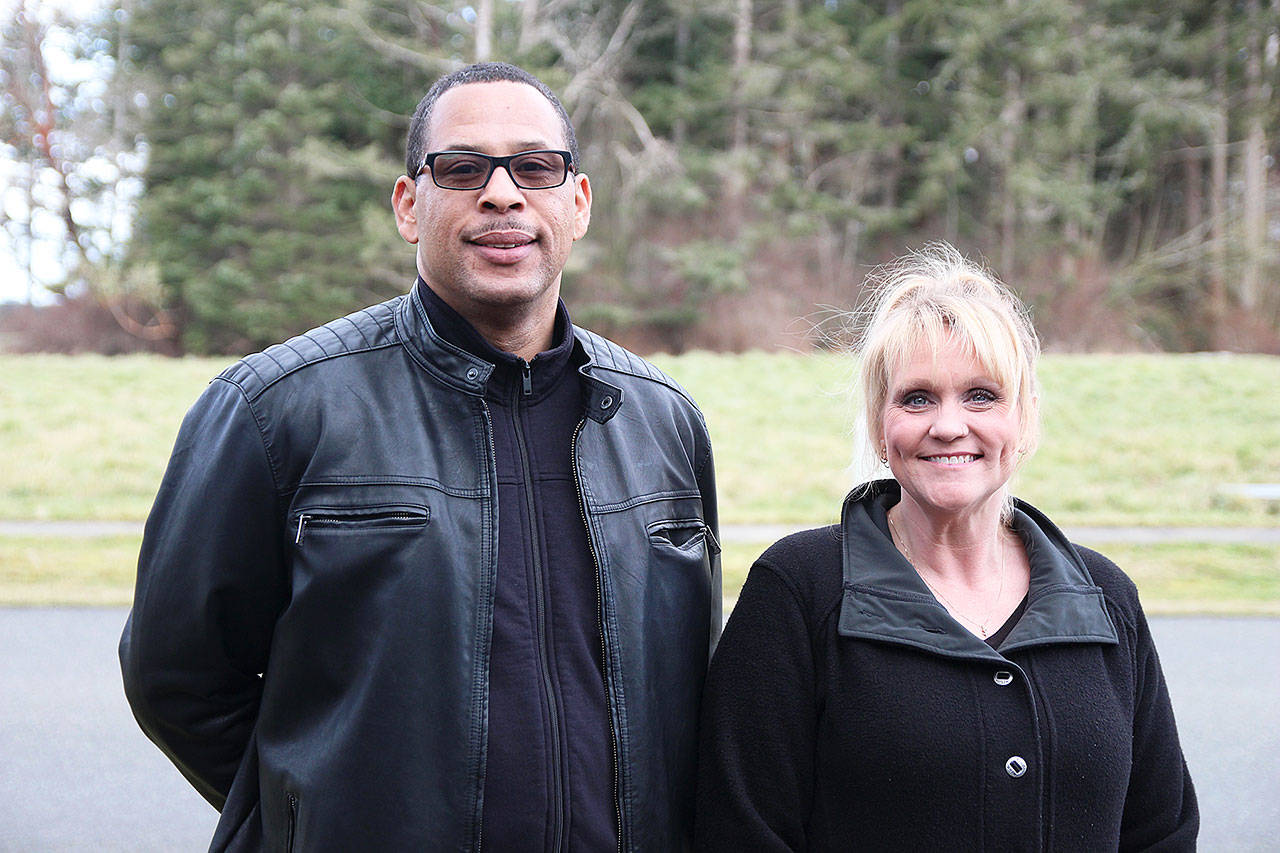Law enforcement officers aren’t social workers. But most days, they respond to multiple calls that have more to do with helping someone in a mental or behavioral health crisis than thwarting actual criminal activity.
“Law enforcement has worn many hats, and this is one of the hats they’ve worn forever,” Oak Harbor Police Chief Kevin Dresker said. “And we’ll never not wear that hat, but the more we can count on the professionals whose specific job is to be able to solve those issues or work through those problems, the better off we are.”
AS PART of a new program, two hires at Island County Human Services are teaming with law enforcement to provide that kind of support.
The goal is to keep what are called “high need, high utilizers” out of jail and the emergency room, which are the most expensive places for them to end up and the least helpful for people suffering from mental illness and/or substance use disorder, said Kathryn Clancy, behavioral health program supervisor.
“My main goal is to provide service to those persons who are in need,” said Richard West, embedded mental health professional.
“I think that’s not only the persons with mental illness but also law enforcement as well.”
WEST WORKS with Oak Harbor police officers and deputies with the Island County Sheriff’s Office as part of a new embedded behavioral health program. He might refer someone to a chemical dependency treatment center, the housing support center, to mental health services or, what’s likely in most cases, to a combination of several services.
That’s where Chelcee Lindell, behavioral health intensive care manager, comes in.
Because many of the people served by the new program have complicated needs, Lindell will work to provide individualized solutions.
LINDELL MIGHT help them enroll in Medicaid, sign them up for food stamps or try and connect them with housing.
“They’ll kind of be on the front lines,” said Jackie Henderson, human services director.
They’ll each be referring people to other departments within human services or other agencies to provide a “cornucopia” of services, she said. Although, she worries that once the program gets going, there’ll be more demand than the two people can fulfill.
ISLAND COUNTY Sheriff Rick Felici said he’s excited to see the county “building bridges” between programs and services. And though there might not be enough to fill the need, he said there has been a significant increase in what’s available in the past 10 years.
This program is a huge step for a small county. Clancy and Henderson said the embedded social worker model is fairly rare for small counties and is usually done just at the city level. Snohomish and King counties have established similar programs and both have offered insight to Island County, Henderson said. However, she knows it will likely look different in a more rural setting.
Everyone involved acknowledged the results won’t be instantly visible.
“I don’t see it as the solution,” Felici said. “It’s another tool.”
CLANCY SAID the strategy of “watchful waiting” had shown success in the county’s opioid outreach program. It can take a long time to build enough trust for someone to accept help, she said. But she, Henderson, Felici and Dresker agreed that the right people were hired for the task.
West came from the state Department of Corrections where he served as a community corrections officer. He worked in Island County extensively helping recently released inmates reintegrate into communities. He has a master’s degree in counseling psychology, experience as a mental health professional and certification as a chemical dependency professional.
“I think we hit a home run,” Felici said of West.
LINDELL BRINGS experience working for Island County Public Health’s Women, Infants and Children program, which provides education and nutrition to new mothers and young children.
She also worked at the needle exchange site on Camano Island, and there she gained most of her case management experience in referring clients to other services and trying to aid in their recovery process.
She said the most valuable skills she gained in those positions were listening to people and creating a safe, comfortable environment.
“My goals are to help individuals reach their potential with forming a safety net, a support system, getting them the different services they need for what they want,” Lindell said.
In her new position, she’ll also be serving as jail transition coordinator. She’ll work with inmates being released to connect them with what they need to be successful and, ideally, avoid jail in the future.
The reality is some of the people they try to help will still end up incarcerated. Felici and Dresker both said even if they want to help people get mental health help, sometimes those individuals will still be arrested. Help can’t be forced upon people, so not everyone will necessarily benefit, Dresker said.
Plenty of officers and deputies have individuals they come into contact with frequently that could benefit from the type of support West and Lindell were hired to provide.
Another new county position, an epidemiologist, will help the department track and use data to determine the effectiveness of the program as it goes on.
Henderson hopes Island County will become a model for other rural counties to implement similar systems.
“I really just see this as the beginning of who knows what else,” she said.



